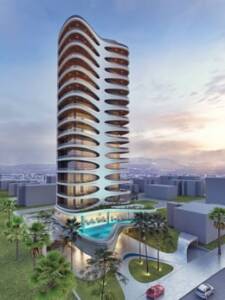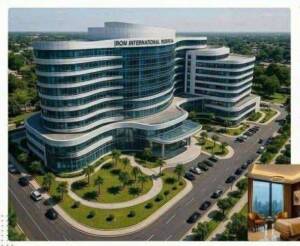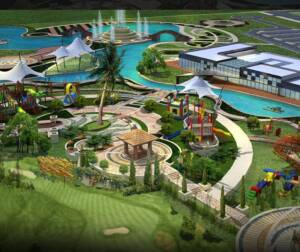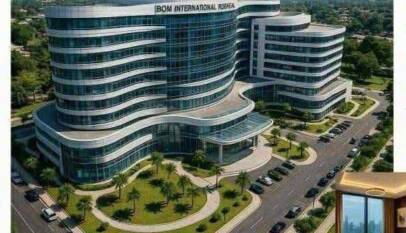Uno Eno: Building enduring legacies in the tourism sector



By Emmanuel Nicholas
Governor Umo Eno, PhD, has identified the tourism subsector as a strategic catalyst for diversifying Akwa Ibom State’s economy, expanding internally generated revenue (IGR), and creating employment opportunities for its citizens.
As a central pillar of his Arise Agenda, the Governor has prioritized targeted, high-impact projects and instituted a comprehensive framework alongside bold policies designed to unlock the sector’s potential and revive the social economy.
In response to growing public interest in the Governor’s legacy initiatives across various fields, I will showcase and evaluate the tourism projects he is vigorously pursuing, projects intended to become enduring legacies that will strengthen the state’s economic indicators. ARISE PARK
In a bold and visionary move, Governor Umo Eno is spearheading a remarkable transformation of a once devastating erosion valley into a series of captivating tourism sites in a bid to boost tourism in Akwa Ibom State.
The valley connecting from Brooks Street in Uyo into Ewet village and that pours its erosion water into the back of St Luke’s Hospital in Anna is about to become one of the largest tourist centers.
The innovative project will not only address environmental challenges but also harness the natural beauty of the area to create economic opportunities and attract visitors from far and wide.
Governor Umo Eno is transforming the gully erosion site into gardens, Water parks, Hostels, malls, playgrounds, games village, golf course, lawn tennis court, swimming pools, restaurants and children’s holiday park
The erosion valley, once a symbol of environmental degradation and destruction, is undergoing revitalization that will make it a picturesque landscape that showcases the resilience and creativity of the beautiful vegetation.
One of the key features of the project is the creation of hiking trails and viewing platforms that offer breathtaking panoramic views of the surrounding countryside. Visitors can now explore the once treacherous terrain safely and enjoy the natural beauty of the area while learning about the local flora and fauna.
Governor Umo Eno’s initiative will transform a previously devastated environment and lay the foundation for a more prosperous and sustainable future for future generations.
Furthermore, it will establish an ideal destination for leisure enthusiasts and vacationers, while couples planning weddings or already married can utilize the facility for receptions and photo shoots.
Furthermore, artists will have the opportunity to use the center for media briefing, album listening Party, musical concerts and filming movies and musicals
And Athletes will have the opportunity to utilize the Golf Course, swimming pools, Tennis Court, volleyball court, and other sports facilities available at the games village.
Ibom International Hotel and Conference Centre
The vision for the Ibom International Hotel, formerly known as the Ibom Tropicana Complex, is ambitious and multifaceted. Conceived as a vibrant centre for recreation and leisure, the development will also feature an exciting themed park with both wet and dry attractions designed to delight children and adults alike.
At its heart will be a state-of-the-art conference centre capable of accommodating 5,000 delegates, complemented by bustling retail precincts and a six-screen cineplex. Anchoring the complex is a luxurious five-star hotel comprising 258 rooms.
The overarching objective of the project is to transform Akwa Ibom into a premier destination—comparable in appeal to globally renowned leisure cities—thereby attracting both domestic visitors and international tourists.
Occupying a sprawling 168 hectares in Uyo, the state capital, the site regrettably became the target of unscrupulous land grabbers who attempted to sell parcels fraudulently to unsuspecting buyers. In response, Governor Umo Eno has expanded the mall precinct and undertaken the eviction of all illegal occupants, guided by a vision to elevate the area into an international shopping destination.
Additionally, the Governor has incorporated a cultural village within the complex to allow tourists to experience local cultures firsthand and to purchase raffia and other artworks that reflect the traditions of the state.
The project has now advanced to an appreciable stage of completion and is scheduled for commissioning in 2026.
ARISE City Shopping Complex
Arise City Shopping Complex emerges as a monumental addition to the urban and cultural fabric of Akwa Ibom State, conceived as an integrated retail and lifestyle destination that complements the existing Ibom International Hotel and Conference Centre.
Envisaged as both a commercial nucleus and a civic landmark, Arise City promises to elevate the visitor experience through an artful fusion of contemporary architecture, curated retailing, and public amenity spaces. This development, championed by Governor Umo Eno, signals a decisive commitment to positioning the region as a premier hub for leisure, business and tourism.
At its core, Arise City Shopping Complex will comprise a multiplicity of components designed to satisfy diverse consumer and visitor needs. Anchored malls will host internationally recognized brands and department stores, while dedicated showrooms will provide premium spaces for automobiles, electronics, furnishings and designer goods. A large, modern supermarket will cater to daily conveniences, complemented by an array of specialty stores and boutiques offering fashion, beauty, homeware and artisanal products.
Culinary offerings will include food courts, fine-dining restaurants and cafés, while entertainment amenities such as a multiplex cinema, family play zones and live-performance venues will round out the visitor experience.
Beyond retail, the complex will integrate essential support facilities and experiential features to create a seamless, high-quality environment. Expansive parking structures and valet services, efficient public-transport links and well-signposted pedestrian promenades will facilitate effortless access for both residents and international visitors.
Thoughtfully landscaped plazas, rooftop terraces, and green corridors will provide restful interludes amid commercial activity, and conference-supporting facilities—exhibition galleries, event halls and meeting pods- will dovetail with the adjacent hotel and conference centre to host simultaneous business and leisure programmes.
Arise City’s capacity to attract tourists lies in the deliberate interplay of convenience, novelty and cultural authenticity. For international and domestic travellers staying at the Ibom International Hotel and Conference Centre, the complex will offer immediate access to shopping, dining and entertainment without the need for long transfers, making it an irresistible stop for delegates, leisure visitors and transit tourists.
Regular cultural showcases, artisan markets, seasonal festivals and curated exhibitions—featuring local crafts, music and cuisine—will give tourists an authentic taste of the region while providing compelling reasons for extended stays and repeat visits.
Economically and socially, the complex is poised to catalyse broad-based benefits. Through generating employment across retail, hospitality, logistics and creative sectors, Arise City will contribute to inclusive growth and skills development.
It will strengthen the local supply chain by creating new outlets for regional producers and designers, and it will enhance the competitiveness of the Ibom International Hotel and Conference Centre by increasing occupancy and elongating average visitor duration.
The resultant multiplier effects of higher tourist spending, increased business events and amplified regional visibility will support the state’s long-term tourism and investment strategy.
In sum, Arise City Shopping Complex represents more than an assemblage of shops; it is a strategic urban instrument designed to invigorate tourism, commerce and communal life in tandem with the Ibom International Hotel and Conference Centre.
Governor Umo Eno’s initiative to integrate a world-class shopping and lifestyle precinct into the existing hospitality and conferencing ecosystem reflects a visionary approach to destination development. As the project comes to fruition, Arise City is set to become a distinguished magnet for visitors seeking a harmonious blend of retail sophistication, cultural richness and modern convenience.
Four Star Hotel, Abuja
The Akwa Ibom State Government has formally announced an ambitious initiative to erect a four‑star hospitality establishment provisionally titled the Ibom Hotel, within the Federal Capital Territory of Abuja. Conceived as a deliberate policy instrument to diversify the State’s revenue base and diminish its historical reliance upon petroleum receipts, this project exemplifies the government’s pivot toward sustainable, non‑oil income generation.
Planned as a capacious high-rise edifice, the proposed hotel is intended to make a conspicuous and dignified contribution to Abuja’s urban fabric; the development will capitalize upon land and properties previously acquired on behalf of the State by earlier administrations, thereby restoring and enhancing their patrimonial and commercial value.
The vertical massing and contemporary design are envisaged to afford both visual prominence and efficient use of valuable metropolitan land.
Beyond its architectural presence, the Ibom Hotel is designed to invigorate the tourism and hospitality sectors of the nation’s capital by attracting leisure visitors, business travelers, and conference delegates.
By broadening the State’s portfolio of income‑earning assets and generating internally generated revenue, the enterprise is expected to furnish a steady stream of resources that will contribute to Akwa Ibom’s fiscal resilience and long‑term economic stability.
A central objective of the project is the creation of meaningful employment and skills development opportunities for the State’s burgeoning youth population; from construction through to ongoing hotel operations, the initiative will facilitate job creation across a spectrum of professions—management, culinary arts, housekeeping, front‑office services, maintenance and security—while also stimulating local supply chains and ancillary enterprises.
To conform to four‑star standards and deliver a high‑quality guest experience, the hotel will incorporate a comprehensive suite of facilities and services: generously appointed guest rooms with en‑suite bathrooms, climate control, high‑speed wireless internet, flat‑screen televisions, in‑room safes and minibars; round‑the‑clock reception, concierge and secure electronic key systems; daily housekeeping, laundry and dry‑cleaning services; in‑house dining options including one or more restaurants and a bar or lounge; banquet halls and well‑equipped meeting and conference rooms supported by a business centre; leisure amenities such as a fitness centre, swimming pool, spa treatment rooms, and landscaped outdoor areas; ample parking with valet and shuttle services; accessibility provisions for guests with reduced mobility; and robust safety, security and emergency response measures administered by trained personnel.
In sum, the envisaged Ibom Hotel in Abuja is conceived not merely as a commercial venture but as an integrated instrument of state economic policy: it seeks to enhance Akwa Ibom’s fiscal autonomy, promote tourism and business travel, elevate the value of state assets, and deliver employment and enterprise opportunities to local communities—thereby yielding enduring social and economic dividends for the State.
Medical Tourism
Ibom International Hospital (IIH) is envisioned as a JCI‑accredited, quaternary‑level referral centre anchored in the Ibom Medical City along the state’s Medical Corridor.
As a flagship of the ARISE agenda under Governor Umo Eno and implemented by the Akwa Ibom Ministry of Health, IIH sits within a larger cluster that will include multispecialty hospitals, academic institutions, pharmaceutical parks and residential support for health professionals.
The hospital’s clear mandate is to deliver world‑class, multidisciplinary care and to serve as a regional referral hub.
IIH is designed to provide the highest level of clinical complexity across a vast range of specialties, from advanced neurosurgery, transplant medicine and cardiothoracic surgery to interventional cardiology, oncology, reproductive medicine/IVF and paediatric critical care. The clinical footprint is strengthened by cutting‑edge technology: TrueBeam linear accelerator radiotherapy, cyclotron, PET‑CT, intra‑operative MRI/CT, 3T MRI, O‑Arm, a Da Vinci robotic surgery suite and ten modular super‑sterile operating theatres (including dedicated transplant ORs).
This combination of expertise and equipment positions IIH to manage rare, high‑acuity cases that typically require travel abroad.
The hospital’s physical infrastructure and patient experience are tailored for both complex care and high expectations. The 9‑storey facility (37,000 sqm) features a grand three‑story atrium, wellness gardens including a rooftop Lifestyle Medicine centre, VIP and VVIP suites, sauna and spa facilities, NICU/PICU, specialized burn unit, helipad and dedicated VVIP underground parking. IIH is a smart, secure building with advanced HVAC (HEPA and laminar zones), full medical gas systems and a 2‑MW solar farm, attributes that support infection control, reliability and patient comfort.
Located inside a planned Medical City, the hospital can offer bundled services (treatment, accommodation, rehabilitation, and pharmaceutical access) attractive to international patients.
IIH also brings strong institutional capacity for research, training and professional collaboration. Planned laboratory genetics/genomics research, links to academic institutions, and endorsements from a wide range of Nigerian professional bodies (medical, nursing, pharmacy, allied health) signal a robust workforce and governance support.
The projected economic impact of thousands of construction and permanent jobs and local vendor engagement further underlines sustainability and community integration, important factors for long‑term medical tourism credibility and partnerships with insurers, foreign hospitals and medical travel facilitators.
Medical tourism potential: IIH is well placed to become a major destination for regional and diaspora patients seeking high‑complexity care that today often requires travel to Europe or Asia.
Key selling points include: comprehensive quaternary services (transplant, oncology, cardiothoracic and neuro‑surgery, IVF), advanced diagnostics and therapy (cyclotron, PET‑CT, intra‑op MRI), robotic surgery and super‑sterile ORs; one‑stop continuity of care within a Medical City; luxury recovery and wellness amenities; rapid access via helipad and VIP logistics; sustainability and uninterrupted power backed by onsite solar; and the pursuit of JCI accreditation to build international trust.
With targeted international marketing, dedicated international patient services, streamlined visa/logistics partnerships and competitive pricing, IIH can capture medical travelers from West and Central Africa and the global Nigerian diaspora, reduce outbound health expenditures, and create a sustainable revenue stream that accelerates regional health system development.
Farming Tourism
Ibom Model Farms in Nsit Ubium is a landmark 50-hectare agricultural development in Akwa Ibom designed to deliver food sufficiency, create jobs and open a new chapter for farm-based tourism in the state.
Inspired by Songai (Songhai) Farms, the project is conceived as a practical demonstration of modern, integrated agriculture, a living classroom where production, processing and visitor experiences come together.
Though still ongoing, the farm is already shaping up as a model for sustainable rural development and an attractive destination for families, school groups and agribusiness investors.
The design of the facility brings together a wide range of farm enterprises so visitors can see many production systems in one place. Planned operations include aquaculture (fish and shrimp), poultry (broilers and layers), cattle (beef), a dairy unit, goat and sheep pens, piggery, apiary (beekeeping), vegetable/market gardens, fruit orchards, floriculture (cut flowers), a mushroom farm, rabbitry, herb and spice plots (ginger, turmeric, basil), and an agroforestry/tree nursery.
These mixed farms create rich tourism potential. Guided farm tours, hands-on workshops and school excursions will teach visitors about sustainable production methods; a farm-to-table restaurant will serve fresh seafood from the aquatic unit and the best chicken and other meats raised on-site; and recreational amenities, playgrounds for children, colourful gardens for couples, and lodging homes and cabins for family expedition holidays will encourage longer stays.
Additional visitor experiences could include boat or fishing excursions on pond systems, animal petting areas, birdwatching, seasonal harvest festivals, cooking classes, and event spaces for weddings or corporate retreats.
Beyond tourism, Ibom Model Farms promises broad social and economic benefits. Concentrating diversified production on 50 hectares strengthens local food security, generates year-round employment, supports smallholder linkages, and provides market-ready products for local restaurants and retailers.
Its educational programming and demonstration plots will help transfer skills to youth and farmers across the region, while sustainable practices in water use, integrated pest management and agroforestry will showcase replicable techniques for other projects.
As the project progresses, Ibom Model Farms is positioning itself as a must-visit rural attraction in Akwa Ibom, part demonstration farm, part educational center, part leisure destination.
Visitors, school groups, tour operators and investors are encouraged to follow developments and plan future visits to experience firsthand how diversified farming and thoughtful tourism design can work together to boost the local economy and celebrate the state’s agricultural potential.
Governor Umo Eno’s Arise Agenda sets out a coherent and ambitious blueprint for repositioning Akwa Ibom through tourism-driven economic diversification.
Through turning environmental challenges into assets at Arise Park, completing the Ibom International Hotels & Conference Centre, expanding the State’s footprint with a 4‑star hotel in Abuja, building a world‑class medical tourism hub at Ibom International Hospital, and demonstrating sustainable agritourism at Ibom Model Farms, the administration is creating a multifaceted tourism ecosystem.
These projects promise to generate internal revenue, create thousands of jobs, develop local skills, showcase Akwa Ibom’s culture and creativity, and offer services that currently necessitate travel abroad, all while rehabilitating land and strengthening community infrastructure.
Realizing this vision will require sustained public‑private collaboration, transparent governance, and careful stewardship to ensure long‑term sustainability and inclusive benefits for citizens. As these projects will be delivered as planned, these initiatives will not only boost the state’s global profile and resilience but also leave an enduring legacy of prosperity, innovation and pride for future generations.
Celebrations powers women entrepreneurs, boosts local economies with project advances
Chinedum Ukaegbu Celebrations, a brand rooted in helping people express their hearts throu…






